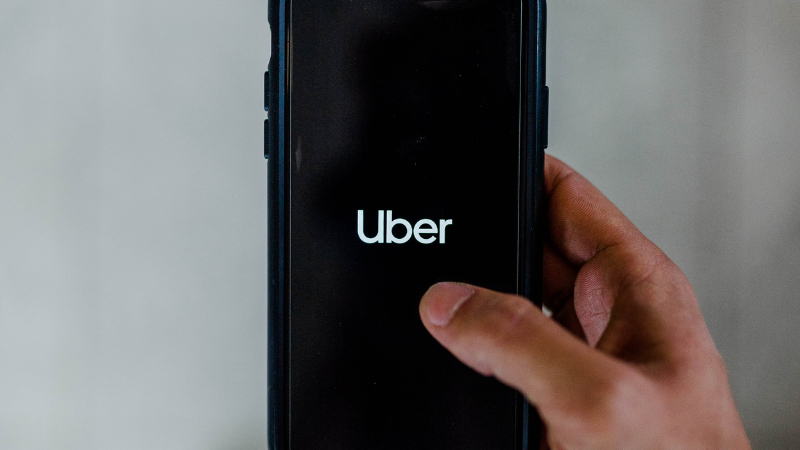Ride-hailing platform Uber has warned that it will increase consumer prices and remove its service from “hundreds” of European cities in response to upcoming EU legislation that gives gig workers full employee rights.
The Platform Work Directive would see freelance drivers and couriers, known as gig workers or platform workers, reclassified to de facto full-time employees to curb exploitative practices by the online ride-hailing and food delivery platforms that employ them.
In response to the upcoming legislation, which the European Council took a common stance on last June, Uber Head of Mobility in Europe Anabel Díaz said the company would have to stop operating in “hundreds” of the cities it serves and increase prices by “as much as 40% for consumers.”
In the Financial Times report, Díaz assured investors Uber would keep turning a profit, with consumer and worker layoffs and price hikes evidently making up for any losses. Last year, Uber made $8.6 billion in worldwide revenue.
Díaz claimed that introducing national legislation with similar aims in Geneva, Germany, and Spain led to “devastating” job losses. In Germany, Uber contracts middleman companies which employ drivers to serve the app’s customers. The model is similar to temping agencies in Malta, which companies contract to supply human resources.
Uber was rolled out in Malta in June 2022 in partnership with Alf Mizzi and Sons and is led by the former CEO of Bolt, Sebastian Ripard. It faces competition from similar ride-hailing services such as Bolt, eCabs and several smaller operators.
While last year, virtually every press outlet in Malta hailed the arrival of the ride-sharing app, replicating the company’s statement without question, The Shift reported the real story, showing the company’s track record on labour rights issues.
The gig work industry in Malta remains largely unregulated, except for rules obliging vehicles used as taxis to be registered with ‘Y’ licence plates, requiring overnight garaging and driver ID tags.
Last June, the European Council adopted a common position ahead of negotiations with the European Parliament for the Platform Work Directive, claiming it will help “millions of gig workers gain access to employment rights.”
The directive proposal calls for the introduction of criteria to determine the “correct employment status” of workers. The Council claimed the EU had 28 million platform workers “including taxi drivers, domestic workers and food delivery drivers.”
Among other criteria, platform workers with limitations on how much revenue they can generate and restrictions on whether they can turn down work and workplace dress codes would be legally considered an employee of the platform.
The proposal also seeks to introduce more transparency into the algorithms used by employment platforms like Uber, ensuring “workers are informed about the use of automated monitoring and decision-making systems.”













Any local operator involved in a ‘platform’ business based on the exploitation of desperados can perish for all I care. Would the Maltese starve without courier-delivered burgers or be unable to get to the airport without TCN-driven cars? I think not.
Workers have to be given their full rights and the law EU and local legislation should ensure that. That is the bottom line. The market economy is based on competition so companies have to compete. Subsidising them through cheap labour is not market economy but slavery. Not in my name.
Ok but what if it’s true self employment we’re speaking of?
Honestly, i can see the directive failing.
Parliament hell bent on reclassification to the point that freelancing is no longer allowed and Council trying its best to preserve true freelancing.
Personally i’m freelancing with a competitor in the food delivery field and in my daily routine i can’t see enough criteria being satisfied.
I’d really hate it if Parliament got its way and forced me to become an employee and therefore earn way less and lose my flexibility, or lose my job altogether due to the platform exiting the EU
Let Uber go down. Do they think they have a monopoly on slave trading? There is a LOT more competition out there doing the same thing.
I’ve freelanced with Uber Eats before and i can assure you i didn’t see enough Council’s control criteria being satisfied. Didn’t feel like a slave at any time.
Free to dress like i wanted, set my own shifts, refuse any task without consequences, pay level set by a collective bargaining agreement rather than by Uber itself, customer and restaurant rating didn’t seem to have any effect upon my business. No subcontracting allowed only due to CBA. All of this in Italy before they left the market this Summer
we shouldn’t be having these greedy cooperates that exploits both customers and workers hope they get kicked from every country taxi fair were cheaper for customers and drivers were getting paid better and you local take away did free delivery on food
So uber threatens to close down its companies if workers assert their rights, nice publicity..
But Uber drivers, even if not hired directly by the company, have contracts with it, so in the event of a sudden closure, the drivers should be reimbursed. This is what Europe should do..